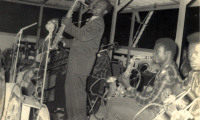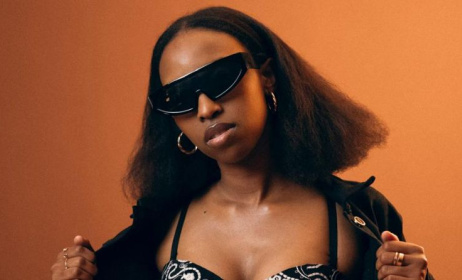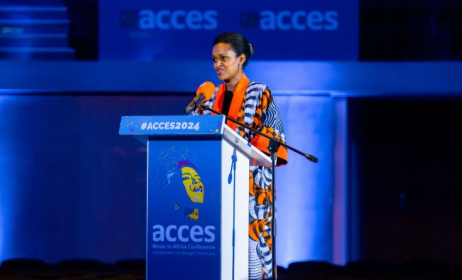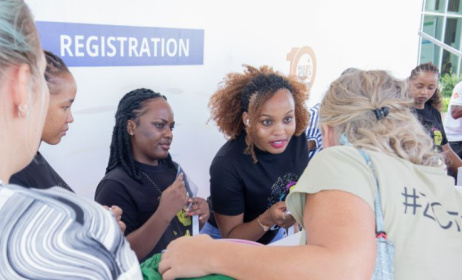Raiza Biza: From the Great Lakes to the South Pacific
By Uwase Mutimura
Hip-hop is probably not the first thought that comes to mind when New Zealand is mentioned. But that could change soon if Ray Ruzibiza - better known as Raiza Biza - has anything to do with it. Born to Rwandan parents in the Southern DRC town of Musoshi, this young rapper is taking the Kiwi music scene by storm.
 Raiza Biza
Raiza Biza Raiza Biza
Raiza Biza
Raiza spent most of his childhood and early teens in Joburg. It was here, during South Africa’s tumultuous transition from apartheid rule to democracy in the early 1990s, that the hip-hop bug bit. There was an electric charge in the air, which Raiza could not ignore, young as he was.
As he so succinctly puts it in the song ‘7th Floor’[i] off his 2013 release Summer; “I moved to Joburg without a grasp of the English language, listening to Pac and rapping along”. Music transcended the language and cultural barrier, helping Raiza to make sense of the new world he found himself in.
It helped that the South African hip-hop scene was in its infancy, fresh and full of possibilities. Raiza would rush home from school to make sure that he caught the YFM cypher sessions on Wednesday afternoons, armed with a cassette, ready to press record.
He took to the mic at age 11, at first just for his friends, who often joined in. He only started recording after he moved to Hamilton, a small city in New Zealand, at the age of 15. Those first few years were tough for Raiza. As the first wave of African immigrants to move to the island, he had no one to help him carve an identity. Again, he turned to hip-hop, his faithful friend. “From the age of about 11, I lived in my headphones,” he remembers.
The New Zealand scene was much like the South African one in that it was also in its infancy. But Raiza persevered and slowly made contact with like-minded people. Today he’s built up a local fanbase by performing in big and small towns. He treats his audience to what he describes as throwback, golden-era, introspective, 90s-influenced hip-hop with the help of his live band.
He still explores the subject of identity, often mentioning the Rwandan heritage from which he feels far removed. In an episode of Both Worlds[ii], a New Zealand TV show that explores the experiences of young immigrants, Raiza asks his father why he was never taught Kinyarwanda (the language spoken in Rwanda) or about Rwandan culture. The episode sheds some light on what it means to be part of a generation that has had to grow up in countries other than their own due to conflict and insecurity.
Raiza’s story is one of a family on an epic search for a life free from fear. His parents left Rwanda for the DRC in the late 1980s to escape political unrest, but soon found that they had to leave their new home too. They made their way to Zambia, where his father worked and went to med school. “We lived in this big project building in a tiny apartment,” Raiza recalled. “It was an open plan [place] that had the bed right there, and the kitchen. There [were] no walls.” [iii]
When Raiza turned four, his father moved the family to South Africa, a brand new democracy with new opportunities for African professionals such as him. For a while, life was good for the family in Joburg. After about 10 years, Raiza’s father realised that there was something he wanted that his success could not buy: the certainty that his children would come home unharmed, because crime was rife in Johannesburg at the time. That’s how Raiza found himself in small-town New Zealand.
These days Raiza also mentors some young creatives through his crew, Ammo-Nation. One of the members of this crew is Jane Deezy[iv], Raiza’s younger sister, who is also in the rap game. Her style is different from her brother’s, more raw and unapologetic but just as relatable.
When asked what advice he has for younger musicians, Raiza puts a lot of emphasis on mastering whatever artform one chooses to express oneself. He believes once that is achieved, the audiences and opportunities will come. “People get too focused on getting plays on Youtube,” he said in an interview.[v]
Raiza’s theory of being true to your craft translates to the business model he employs. Most of his albums can be downloaded for free from his Bandcamp[vi] account, where fans can also buy CD versions of the albums. This rather unusual move is due to the fact that Raiza’s fans asked for a tangible way of supporting him after becoming hooked to the music he had given away for free. “In my opinion you have to give a lot to your fans before you ask for their money,” he said.
All of Raiza’s hard work seems to be paying off. In late 2014 he performed at the Rhythm and Alps Festival, the biggest music festival on New Zealand’s South Island, alongside major international bands.
If all this is not enough to convince you about Raiza Biza’s immense talent, check out his latest video for ‘New Kings’ featuring Spycc and Maia Rata, off his 2014 album The Imperfectionist.
[i] https://soundcloud.com/raizabiza/raiza-biza-7th-floor-prod-by
[ii] http://www.maoritelevision.com/tv/shows/both-worlds/S02E006/both-worlds-series-2-episode-6
[iii] http://www.vanguardredmagazine.co.nz/my-dad-raiza-biza-as-told-to/
[iv] https://soundcloud.com/janedeezybaby
[v] http://www.mixcloud.com/RDU/local-and-live-ep-20-raiza-biza-at-dux-live/



































Comments
Log in or register to post comments